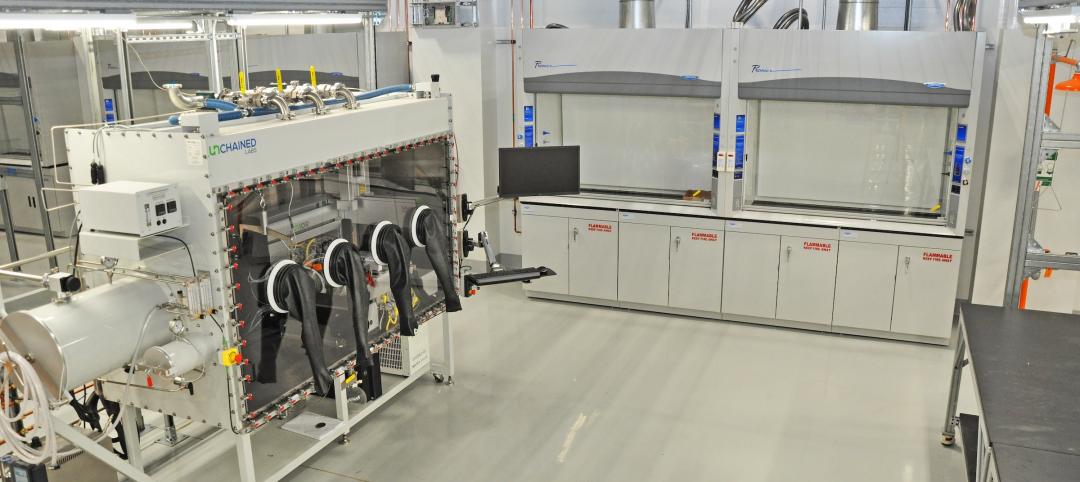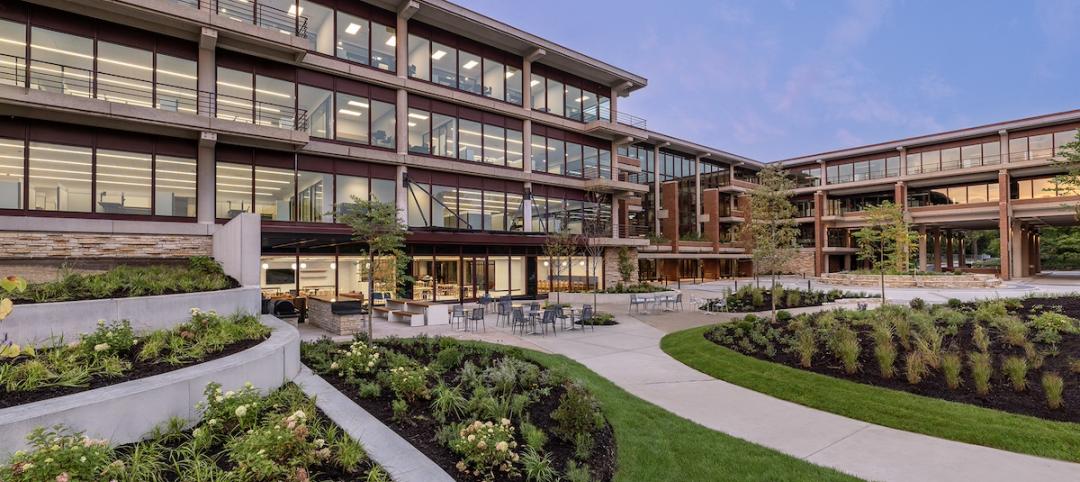2020 has been a peach, hasn’t it? A global pandemic. Raging wild fires. Riots and looting. Facemask battles. Ongoing trade wars. Election-year shenanigans. Recession fears. Increasingly divisive politics. Everything canceled. (Lest we forget zombie deer and murder hornets.)
In a year of jobsite shutdowns, project delays, funding pitfalls, and project postponements—and with no guarantee of a more prosperous 2021—it is understandable for AEC firm leaders to take a guarded, hunker-down stance when planning for next year and beyond. It is natural for firms to focus first on “right sizing” the business by slashing investments, overhead, and operational costs.
But these positions of passivity and cost-cutting run counter to the key lessons from AEC leaders who successfully navigated their firms through past market downturns and economic events, says Scott Winstead, President of FMI Management Consulting, who’s firm last year studied takeaways and strategic lessons from the Great Recession (BDCnetwork.com/DownturnLessons).
A common mistake AEC firms make during down cycles, says Winstead, is running the firm as a collection of projects, versus a business. “It’s a subtle but very distinctive difference that speaks to the long view versus the short view, and to the notion that you can’t save your way to prosperity,” says Winstead.
The firms that came out of the Great Recession in growth mode, according to the FMI research report, focused on investing in their clients, people, and business; they diversified their services and found unique ways to outperform the competition; they streamlined their operations and put their “A” players in a position to succeed and grow the business; and they created a company culture that is nimble, collaborative, and transparent.
Winstead says 2020-21 should be no different. “If I think back to 2008 and the beginning innings of the Great Recession, I heard then what we heard early on in this scenario, which is mistaking backlog as a proxy for health,” he says. “Backlog is a reflection of work that has already been sold and booked, and is in the process of being burned off. Past performance is no guarantee of future results.”
The key finding of the FMI research, which gathered insights from more than 150 engineering and construction executives, was that AEC leaders who increased their financial investment in strategy reported higher effectiveness in operations, strategy, and overall company performance, compared to respondents who either didn’t do anything or decreased spending in that area. “Strategic thinking and planning are among the top leadership skills needed to be an effective leader during a recession,” wrote the authors of the report.
Download the FMI report, “Leading Through Business Cycles: Lessons Learned From E&C Executives,” at: BDCnetwork.com/DownturnLessons.
Related Stories
Office Buildings | Mar 8, 2024
Conference room design for the hybrid era
Sam Griesgraber, Senior Interior Designer, BWBR, shares considerations for conference room design in the era of hybrid work.
Architects | Mar 8, 2024
98 architects elevated to AIA's College of Fellows in 2024
The American Institute of Architects (AIA) is elevating 96 member-architects and 2 non-member-architects to its College of Fellows, an honor awarded to architects who have made significant contributions to the profession. The fellowship program was developed to elevate architects who have achieved a standard of excellence in the profession and made a significant contribution to architecture and society on a national level.
Sports and Recreational Facilities | Mar 7, 2024
Bjarke Ingels’ design for the Oakland A’s new Las Vegas ballpark resembles ‘a spherical armadillo’
Designed by Bjarke Ingels Group (BIG) in collaboration with HNTB, the new ballpark for the Oakland Athletics Major League Baseball team will be located on the Las Vegas Strip and offer panoramic views of the city skyline. The 33,000-capacity covered, climate-controlled stadium will sit on nine acres on Las Vegas Boulevard.
Adaptive Reuse | Mar 7, 2024
3 key considerations when converting a warehouse to a laboratory
Does your warehouse facility fit the profile for a successful laboratory conversion that can demand higher rents and lower vacancy rates? Here are three important considerations to factor before proceeding.
Shopping Centers | Mar 7, 2024
How shopping centers can foster strong community connections
In today's retail landscape, shopping centers are evolving beyond mere shopping destinations to become vibrant hubs of community life. Here are three strategies from Nadel Architecture + Planning for creating strong local connections.
Market Data | Mar 6, 2024
Nonresidential construction spending slips 0.4% in January
National nonresidential construction spending decreased 0.4% in January, according to an Associated Builders and Contractors analysis of data published today by the U.S. Census Bureau. On a seasonally adjusted annualized basis, nonresidential spending totaled $1.190 trillion.
MFPRO+ Special Reports | Mar 6, 2024
Top 10 trends in senior living facilities for 2024
The 65-and-over population is growing faster than any other age group. Architects, engineers, and contractors are coming up with creative senior housing solutions to better serve this burgeoning cohort.
Architects | Mar 5, 2024
Riken Yamamoto wins 2024 Pritzker Architecture Prize
The Pritzker Architecture Prize announces Riken Yamamoto, of Yokohama, Japan, as the 2024 Laureate of the Pritzker Architecture Prize, the award that is regarded internationally as architecture’s highest honor.
Office Buildings | Mar 5, 2024
Former McDonald’s headquarters transformed into modern office building for Ace Hardware
In Oak Brook, Ill., about 15 miles west of downtown Chicago, McDonald’s former corporate headquarters has been transformed into a modern office building for its new tenant, Ace Hardware. Now for the first time, Ace Hardware can bring 1,700 employees from three facilities under one roof.
Green | Mar 5, 2024
New York City’s Green Economy Action Plan aims for building decarbonization
New York City’s recently revealed Green Economy Action Plan includes the goals of the decarbonization of buildings and developing a renewable energy system. The ambitious plan includes enabling low-carbon alternatives in the transportation sector and boosting green industries, aiming to create more than 12,000 green economy apprenticeships by 2040.

















